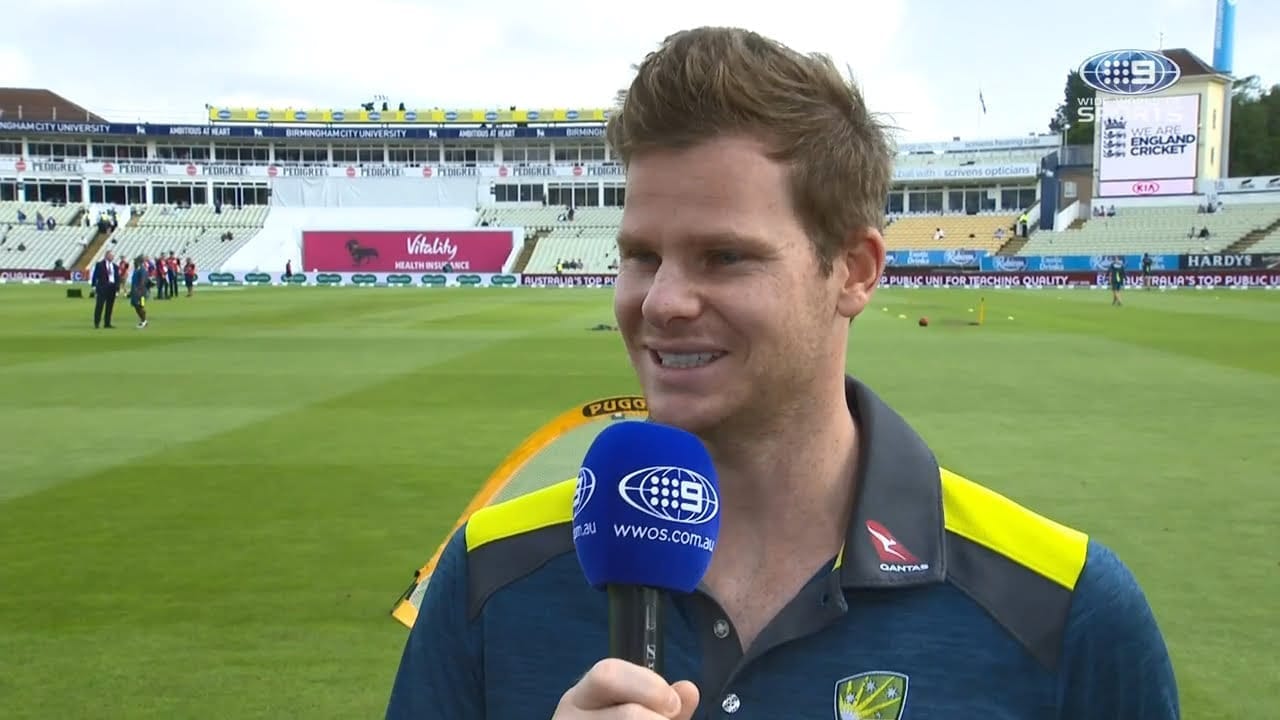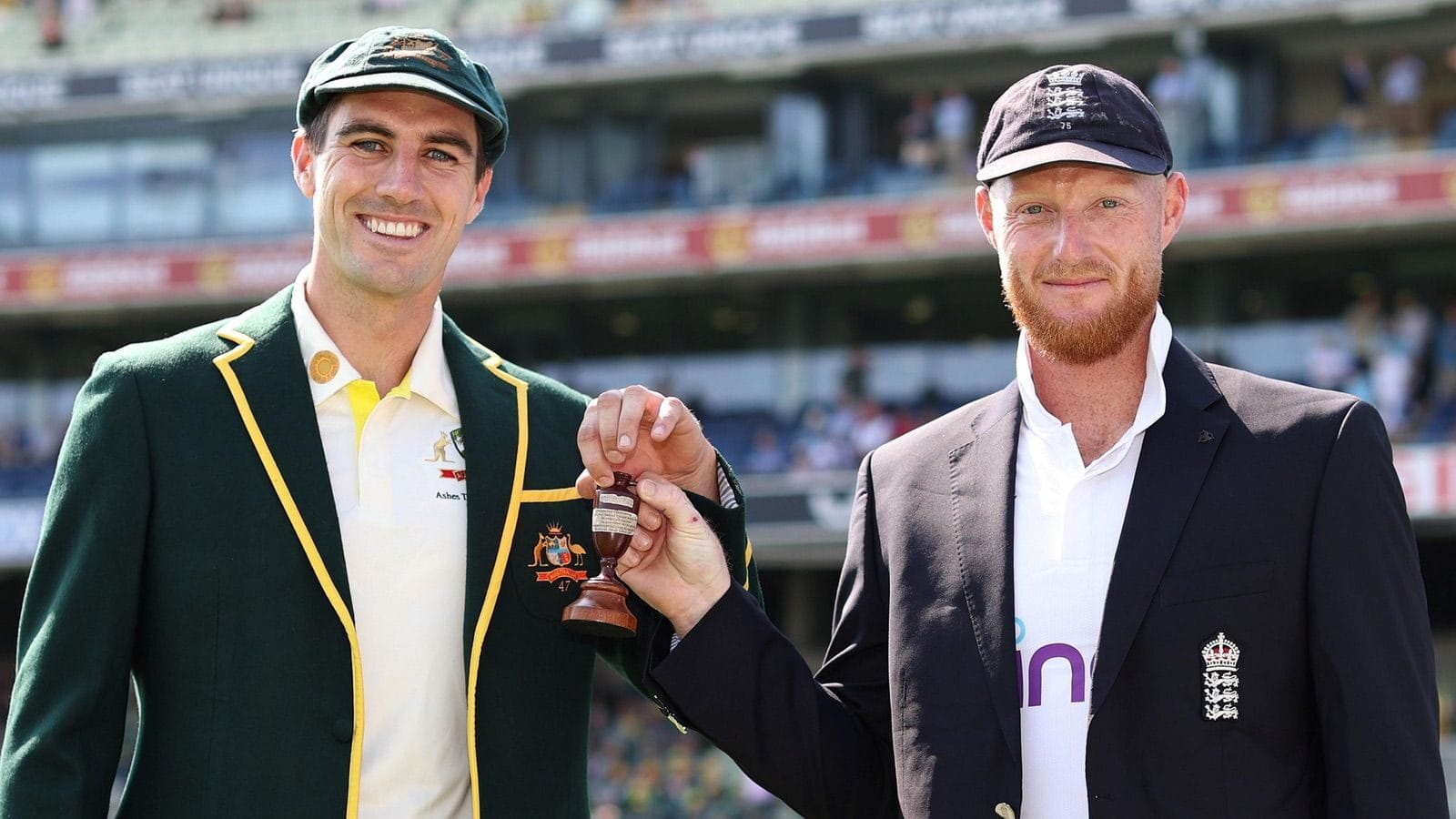Whatever happens in the first Ashes Test at Edgbaston – England are slightly ahead on points, as it were, as I write this before the start of play on the third morning – there is little doubt about the individual performance for which the game will always be remembered.
No disrespect to England’s not-out opener, Rory Burns, who, seemingly against all the odds, made his maiden Test century, but the innings which touched the heights of cricketing immortality was that of the former Australian captain Steve Smith on the first day.
How does one determine whether an innings deserves the overused accolade of greatness? Clearly it can’t simply be a matter of numbers. Nor is it solely, or perhaps at all, a matter of style or aesthetics. That may well come into it of course. There is nobody on the planet who saw Victor Trumper bat, and his figures are not stellar, but anyone who really knows their cricket knows that Trumper was a great player, his reputation preserved largely by a celebrated photograph.

The thing which really determines greatness in an innings – as opposed to a career – is context. In a general way, as everyone recognises, it is impossible to compare performances from different eras because times are so. different. But context embraces so many different considerations that aa degree of universality may be discernible. That is why people are wondering whether Smith’s remarkable innings might be one of the greatest of all Test match innings.
Rather strangely, it was only six months ago that this same question was being posed about another very different sort of innings in a very different context. (And the ICC chairman thinks Test cricket is dying…) In February, in the first Test between South Africa and Sri Lanka, Kusal Perera scored 153 not out to take his team to a sensational one-wicket victory, adding 78 for the last wicket with Vishwa Fernando, of which Fernando made six.
Perera’s innings was very special indeed. Although there were times when Sri Lanka looked capable of chasing down a challenging target of 304, by the time Fernando walked to the middle the odds were obviously with South Africa. They had a highly regarded pace attack who had carried all before them in the home Test season. Perera, not a youngster, had hit only one previous Test century
Pressure is a curious thing. In a sense Perera had nothing to lose. Sri Lanka had won only one previous Test in South Africa; on their most recent visit they had lost three-nil. Why not go for it? Well, deciding to go for it, and actually getting there are two different things, which is why Perera’s innings will always be remembered.
It was compared at the time with Brian Lara’s 153 not out for West Indies against Australia at Bridgetown in 1998-99, which also led to a one-wicket win.
One thinks too of Ian Botham’s two hundreds, at Headingley and Old Trafford, in the great Ashes series of 1981, or, again in a very different context, Ricky Ponting’s masterly defensive innings in the Old Trafford Test in the other great Ashes series of 2005. Kevin Pietersen’s 158 in The Oval Test of that series is surely the greatest innings by an England batsman this millennium, unless it was bettered by another of his magical performances.
Sometimes, even with the greatest of players – Don Bradman, Sachin Tendulkar – it can be difficult to pinpoint a specific performance.
Character is crucial. Some players – Steve Waugh is the classic example – can change the course of a match by sheer will power.
And occasionally context goes well beyond the field of play. Basil d’Oliveira’s magnificent century at The Oval in 1968 didn’t just help England win the match; it changed the course of human history.
One could go on. Great players will play great innings. (That is the extraordinary thing about Perera, whom nobody had thought of as a great player.) That is something that everyone can agree on about Smith.
His career has been an odd one though. Everyone knows that Pietersen started his career in his homeland as an off spinner who could bat a bit. By the time he made his Test debut, however, there was no doubt about his role. Smith played his first Test – against Pakistan at Lord’s in 2010 (when his successor as captain, Paine, also started) as a leg spinner. Nobody seemed prepared to take him seriously. Well, that’s all changed.
Every so often an Australian batsman emerges and people say, this could be the new Bradman. That talk stops soon enough. Nobody said it when Smith started. But they’ve been saying it for a while now. He has an average of over 60, despite doing almost nothing in his first ten games. And his record when Australia bat first is phenomenal.
So where does that leave Smith and his 144 (out of 284) at Edgbaston? Well purely in the context of the game it was extraordinary enough. When Tim Paine won the toss for Australia he must have thought long and hard about fielding. The conditions were ideal for England’s new ball attack (even allowing for the early departure of the injured James Anderson). Smith, who batted at four was in early. By mid-afternoon Australia were 122 for eight.
Smith just carried on. At last, with the arrival of Peter Siddle at the fall of the eighth wicket, he found somebody who could stay with him. Again, Smith just carried on. When last man Nathan Lyon joined him, then he changed tack. When he felt like it, he went big. At one point Joe Root had nine men on the boundary. Smith didn’t care. England had stopped trying to get him out. He was no longer captain, but he could still out-think Root.
It doesn’t look pretty, but it is so effective. The endless fidgeting makes it compulsive watching.
And the context, generally? Well, of course The Ashes is always big, and seems to get bigger.
More than that, of course, this was Smith’s first Test since March 2018, and the trauma of “Sandpapergate”. Like David Warner and Cameron Bamcroft he was warmly – to be honest, tediously – booed at every opportunity. Yet he came out and played as though his last Test innings was a week ago.
Character? Few sportspeople can have had their characters eviscerated as publicly as Smith in the wake of Cape Town. He was banned for twelve months and, more traumatically perhaps, he lost the captaincy. Even he must have thought, “Will it ever be the same?”
Well, now we know. If anything, he might be even better than he was as captain.
As I said at the start, whatever happens in the game, the innings will be remembered. The third morning will be critical. If Australia break through and stop England getting a big lead, the game could be set up for Lyon to play a decisive role in the fourth innings.
But if Burns, Ben Stokes and Jonny Bairstow can build on the solid platform already set, England could put themselves in an invincible position. Then Smith might find himself, like Virat Kohli last year, also at Edgbaston, as the scorer of one of the greatest Test centuries in a losing cause.
Bill Ricquier




